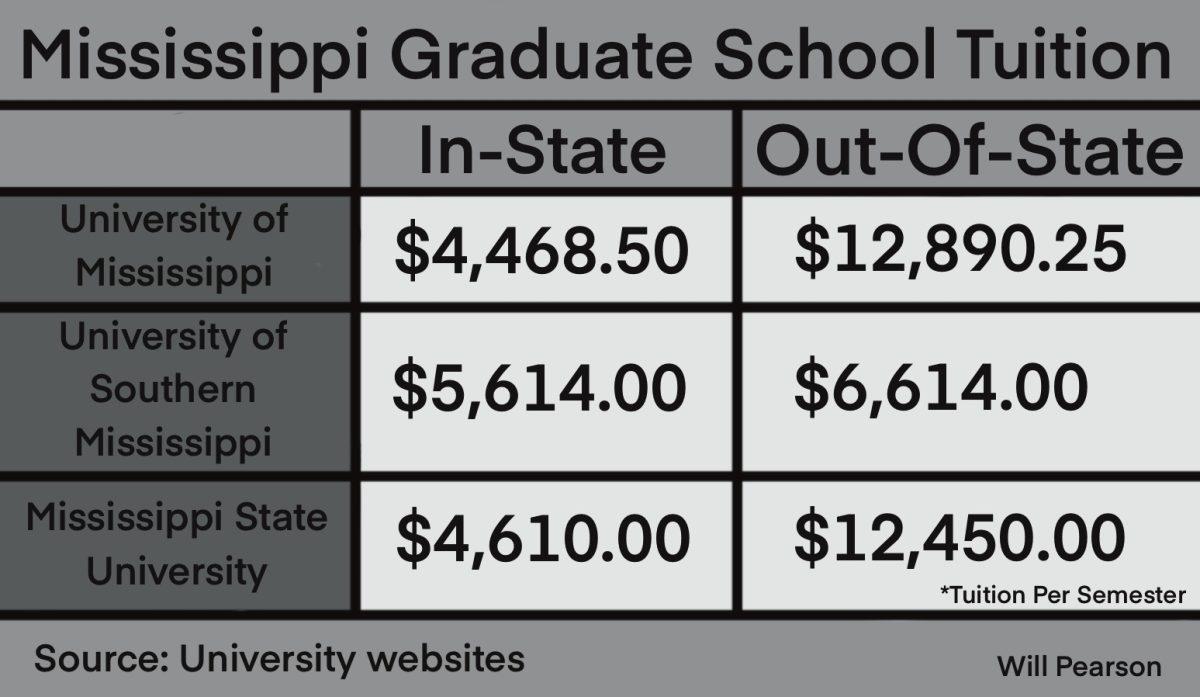As I approach the mid-point of my senior year, the question of “What am I going to do with my life?” runs through my head almost daily. Many students get jobs right out of their undergraduate years, but if you are like me and do not feel entirely certain of your calling, you may be contemplating graduate school.
Of course, after this decision comes the choice of where to go. However, out-of-state tuition tags become daunting once one realizes they are not aided with funds in the same way they were in undergraduate. Many colleges push for diversity of backgrounds and education in their graduate programs but do not provide the resources for this to be feasible. If colleges really wanted diverse graduate programs, they would give all their students both in-state and out-of-state the same opportunities instead of elevating one tuition cost over the other.
Collegexpress’s website states the reasoning behind this difference is because non-resident students do not pay taxes to the state in which the university is located. Resident students are natives and have been paying taxes to the state over the course of their lives which then funds public universities. While this argument does make sense for undergraduate school, it should not apply for graduate school. Graduate school programs are smaller specialized programs and because of this size do not bring in the same bulk of revenue as the thousands of undergraduate students do with housing and meal plans. Graduate students also tend to act as teachers through graduate assistantships, educating students for a fraction of professor’s salaries. Thus, the reasoning behind this difference in costs can only be boiled down to greed.
According to the Mississippi State University’s (MSU) graduate program website, MSU has a $4,610 price tag for resident graduate students per semester and charges $12,450 for non-resident students per semester. Unaided by any scholarships or graduate assistant work, there is a $7,840 additional charge for non-resident graduate students. Still, the same financial programs are not kept in place for those wishing to pursue even higher education.
The difference in cost also contributes to a more significant crisis known as the “brain drain effect,” affecting states all over the U.S. The “brain drain,” as the United States Congress Joint Economic Committee (USCJEC) defines it, is the loss of homegrown talent and the failure to attract out-of-staters who are highly educated. USCJEC then discusses the specific states who struggle the most with this issue, including Mississippi and many other neighboring states. Publications in the state, such as Mississippi Today, are facing this issue head-on with recent surveys, research and articles to attempt to highlight the issue which politicians have done little to nothing to resolve.
The phenomenon was mentioned during the Mississippi governor race back in 2019 but has not gained any traction by getting legislature passed to fix the problem. In an article written by Geoff Pender of The Clarion Ledger, former lieutenant governor, now current governor, Tate Reeves, downplays the brain drain crisis. It states, “he (Reeves) does not believe the issue of graduates leaving Mississippi is as bad as some lawmakers and media reports make it out to be.”
Southern states, like Mississippi, claim they want to keep their younger, higher-educated residents and attract non-residents but do not give any incentive for people to want to be here for their education. Sure, Mississippi has the Mississippi Tuition Assistance Grant (MTAG) for undergraduate school, which is given to resident students as an incentive to study at a college in-state, but it does not work as well as it looks on paper. The MTAG is conditional on the basis that students must be enrolled in at least 15 hours, which I found out this semester when my aid was revoked from me. It also does not provide much help, with the grant only being $500. As for graduate school, the Mississippi financial aid website states students are eligible for forgivable loan programs but no federally funded grants. The only actual incentive given to Mississippi residents is the lower price tag for graduate school tuition opposed to going out of state.
As far as decreases in tuition, non-residents’ tuition exemption of any sort does not come without wanting something in return. According to the MSU graduate website, the stipulations for reduced tuition for non-resident students are graduate assistantships, military veteran waivers, senior citizen waivers, academic alumni scholarships or outside-the-university opportunities. I will not delve into the theory claiming education should be free or close to it, even though that would be greatly beneficial for the U.S. and its citizens. Still, some sort of programs are direly needed to propel our country into being as great as we are all conditioned into thinking it to be.
Reducing out-of-state tuition for graduate school will not fix the brain drain crisis in Mississippi, but it is a start in the right direction of putting others on the same level playing field. Hopefully, one day we will be able to keep all the bright minds in one place and change things here once and for all.
Categories:
Out-of-state graduate school tuition costs contribute to Mississippi’s brain drain crisis
About the Contributor

Emma Dotson, Former Opinion Editor
Emma Dotson served as the Opinion Editor from 2021 to 2022.
0
Donate to The Reflector
Your donation will support the student journalists of Mississippi State University. Your contribution will allow us to purchase equipment and cover our annual website hosting costs.
More to Discover







